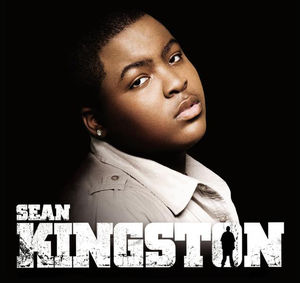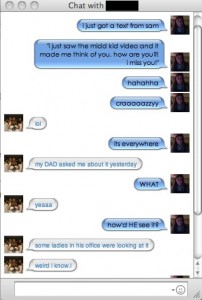I’m brimming with things to say after reading Jonathan Lethem’s engrossing article on the long history of “plagarism” in art; the problem is deciding how to concisely say what I want to say. (And brevity is not my strong suit, if you all haven’t noticed.) I think what Lethem has done successfully here is transport us, for a moment, beyond our “THIS IS THE AGE OF CONVERGENCE” mania to show us that what we face today is merely a new (if profound) iteration of the issues in the lifetime of this thing we call “intellectual property”. In taking this widescreen view of the topic, he’s bridged a lot of ideas that had existed separately in my mind, and reminded me of the importance of the issue by showing that it applies to many more artists than, say, Girl Talk. As in, this idea of “collage” or “pastiche” or “co-optation” or “plagarism” or “influence” or whatever you want to call it–this is an issue of vital importance for any artist.
But while keeping an eye on the universal, Lethem manages to speak very insightfully about the new tangles that arose with Modernism in the 20th century and, later, with our current digital age. Of modernism and postmodernism, he says, “the notes [Eliot] so carefully added to The Waste Land can be read as a symptom of modernism’s contamination anxiety. Taken from this angle, what exactly is postmodernism, except modernism without the anxiety?” I could quote his little bits of wisdom all day, but what really resonates with me is that he expresses his feelings about our current copyright system (”Contemporary copyright, trademark, and patent law is presently corrupted.”), but does so in a very even handed way, making sure not to stray towards the sort of anarchistic/idealistic “everything free, for everybody!” talk that often surfaces in this discussion.
Personally, I can be susceptible to that sort of talk, probably because I’m constantly looking for a way to justify my illegal media-consumption habits. So when an artist I like makes some sort of “fuck the man! download our music for free” statement, I eat that right up, even if that means ignoring statements to the contrary by other artists that I like. There are countless examples of this that I could talk about, but I’ll keep it brief. The story of “Bitter Sweet Symphony” by The Verve, and the controversy with the legal arm of The Rolling Stones, Inc. surrounding that song is quite interesting, and can be read in brief on the wikipedia page for the song.
But perhaps the most widely-discussed case in recent memory is Radiohead’s “pay-what-you-want” digital self-release of their most recent album, In Rainbows. The first wave of response was “yeah, screw the record companies, radiohead is leading the charge into the future of music distribution!” Then the backlash: the vast majority of musical groups/artists can not make this model sustainable, and it was actually harmful for Radiohead to set this as the new, “ethical” way to distribute music. This was probably not Radiohead’s intent–the reaction to their choice merely created this stigma. Whether or not they went on record stating this, I do not know, but being the thoughtful, honest, all-around good guys that they are, I’m guessing they weren’t trying to put other artists in a dangerous position.
But I guess I’ll cap this off for now…I’m sure I’ll blog on this topic more in the next few days, because there really is quite a bit to talk about. I’ll leave you with one of Lethem’s closing paragraphs which I particularly liked:
“Despite hand-wringing at each technological turn—radio, the Internet—the future will be much like the past. Artists will sell some things but also give some things away. Change may be troubling for those who crave less ambiguity, but the life of an artist has never been filled with certainty.”
**So far, the key theme in this class seems to be that there’s WAY more gray area than you might think in all areas of media studies, if you take the time to consider all sides of an issue. It can get overwhelming at times (how can I ever really understand any of these media if they’re all so friggin complicated?!?), but my eyes are open, and I’m just taking in as much as I can.

